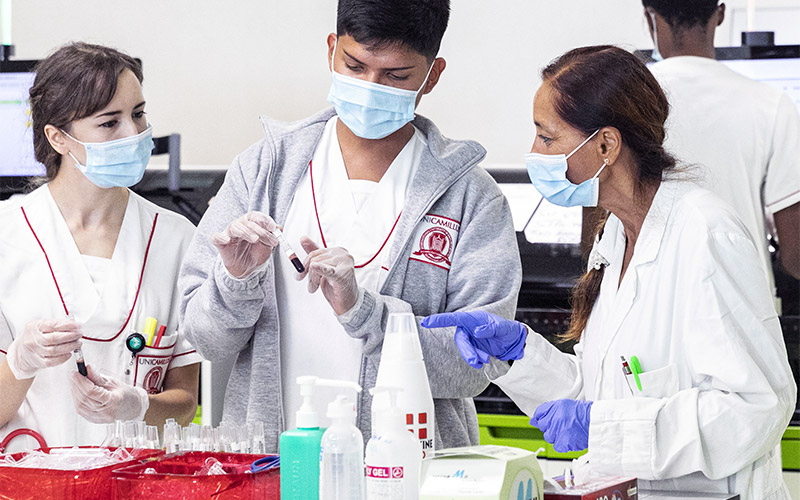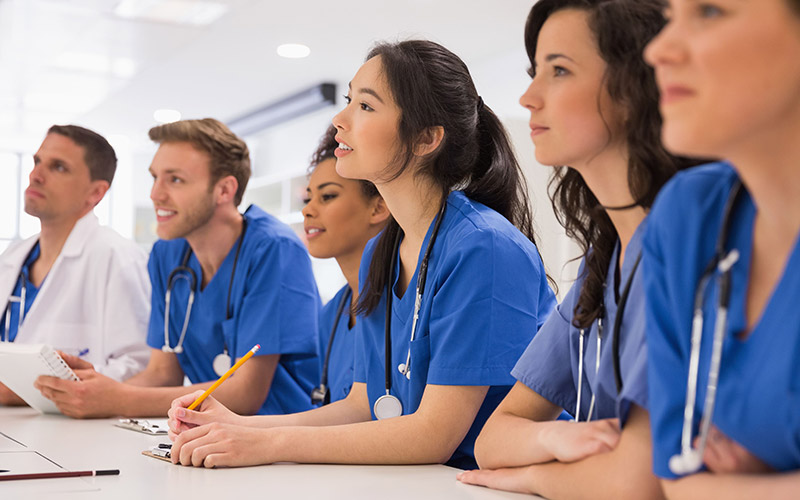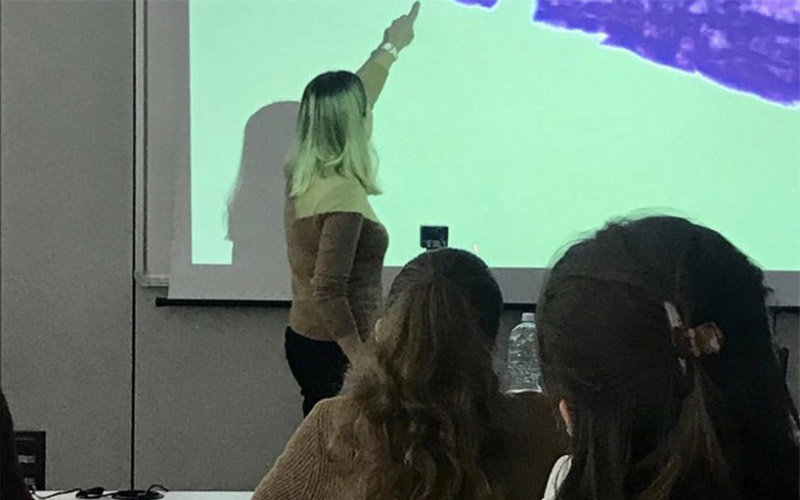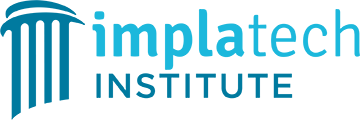


Course Info
Master Directors
Duration
Location
Last Registration Date
Value
Payment Terms
Degree in Medicine and Surgery
The mission of the six year Degree – single cycle – Course is identified with the training of a doctor with an international professional profile, characterized by a multidisciplinary and integrated vision of health and disease problems, with an education oriented towards the community, the territory, the global health challenges and fundamentally towards disease prevention and health promotion and with a humanistic culture in its implications of medical interest. This specific mission is centered not only on the disease, but above all on the sick person, considered in his/her globality of soma and psyche and within the social context. The objectives, whose achievement constitute the qualifying background of the Doctor to be formed include:
- Good capacity for human contact (communication skills);
- Self-learning and self-assessment skills (continuing education);
- Ability to analyze and resolve, in complete autonomy, the problems connected with medical practice, together with a good clinical practice based on scientific evidence (evidence based medicine);
- Habit of constant updating of knowledge and skills, and possession of the methodological and cultural bases for autonomous acquisition and critical evaluation of new knowledge and skills (continuing professional development);
- Good interdisciplinary and interprofessional practice (interprofessional education);
In-depth knowledge of methodological fundaments which are necessary for a correct approach at scientific medical research, joined with an autonomous use of computer-based technologies which are indispensable in the clinical practice.
Types of didactic and educational activities
- Formal didactics
This didactic form includes: – lectures: dealing with one specific topic that is identified by a title and performed by a teacher with the help of computing and/or multimedia supports based on a predefined calendar and given to students enrolled to a specific course year and divided into small groups; – seminars: didactic activities with the same characteristics as lectures but carried out contemporarily by many teachers with different competences and, as such, noted in the lesson registers in each one of them.
During the last period of the course, when non Italian students will have acquired sufficient command of the language, some courses may be taught in Italian. The frontal teaching activity is always provided by teaching staff (first and second level professors, researchers and professors).
- Non formal didactics
It deals with interactive didactic activities aimed at small groups of students and coordinated by a tutor whose task is that of facilitating the students in the acquisition of knowledge, abilities and behavioral models. Learning mainly occurs through stimuli deriving from problem solving and the use of methodological skills needed to resolve them and taking decisions as well as through the direct and personal use of actions (gesture and relational) in practical exercises and/or attending clinical departments, surgeries, territorial facilities and research laboratories. The function of the tutor can also be entrusted to non-university personnel of recognized qualification in the specific training sector, according to the recruitment methods provided by the University regulations.
- Teaching courses. The integrated teaching courses are held by one or more teachers in function to the specific objectives assigned to the course. The specific objectives of the individual courses that are contained in the exam programs and their programming are proposed annually by the course teachers within the start date of the enrolments for the new academic year.
- Professional activities.During the three year degree course, the student is required to acquire the professional specifications in the nursing field by carrying out internships in facilities identified by the degree course council (CCL) and in the defined periods. The internship can also be done in developing countries.
- Elective activities.The degree course council organizes the offer of elective didactic activities that are created with lectures, seminars, interactive courses with small groups among which the student is able to exercise their own personal option until achieving an overall number of 6 credits. Each student autonomously chooses the elective activities among the didactics supplied.
- Training activitiesfor the preparation of the final exam. In order to be admitted to the final degree examination, the student must prepare an original thesis under the guidance and responsibility of a professor of the Faculty of Medicine as a supervisor. This activity is defined as a “graduation internship”. The student can perform the thesis internship at any Faculty structure or affiliated with the Faculty. It can also be carried out at facilities that are not affiliated under the responsibility of the supervisor. The thesis supervisor professors are first or second level professors or adjunct researchers or professors.
Professional Opportunities
Graduates in Medicine and Surgery will carry out the activity of M.D.-surgeon in the various clinical, health and biomedical roles and fields. The employment opportunities normally offered to graduates in Medicine and Surgery are represented by:
- Specialization Schools.
- D.
- Public and private clinics.
- Hospitals and specialist centers.
- Universities and research centers.
- Territorial M.D.
- National and international health and humanitarian organizations.
